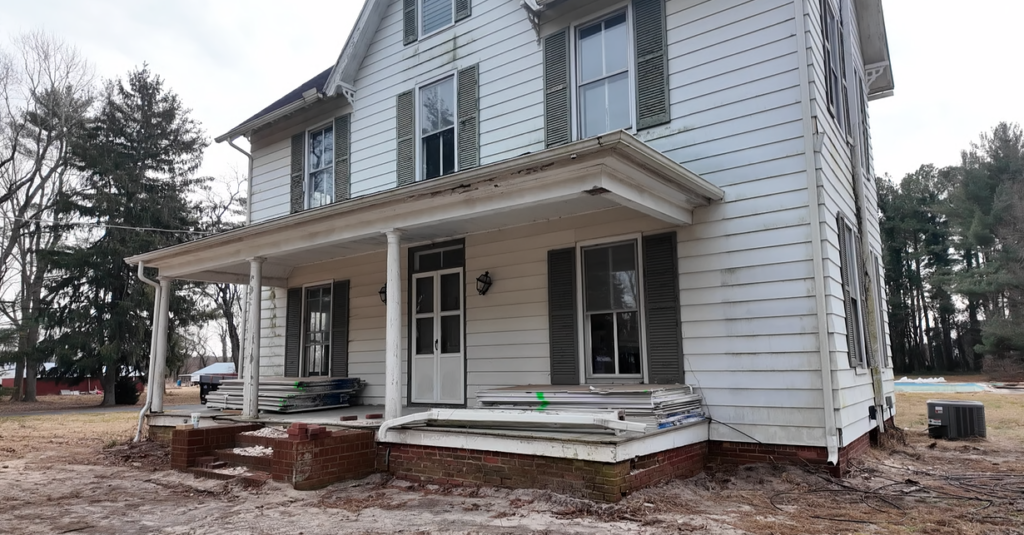Habitat For Humanity expanding services as Del. home repair needs increase
DOVER, Del. – Delaware’s Habitat For Humanity (H4H) organizations say the demand for repairs on homes owned by low-income people is exploding. Now, armed with new data, H4H says they’re planning to expand services to keep up with the demand.
The Hudsons
“He’s a double amputee, and this ramp couldn’t have come at a better time. We didn’t know how we were going to be able to afford it. And, we didn’t think that we were going to get accepted because we’re both retired,” said Dover resident, Vanessa Hudson.
Hudson is talking about her husband, Anthony, who relies on a wheelchair to get around. But after moving to Dover in 2020, it quickly became clear that their home wasn’t wheelchair accessible.
That changed when Hudson was shopping at a local H4H ReStore location. She says she noticed a brochure advertising H4H’s home repair assistance programs, and decided to apply. “You never know if you don’t try, if you don’t go for it, and put the effort in to see. If you don’t knock on the door, nobody knows you’re there,” said Hudson.
Now, a ramp built by H4H leads directly to the family’s front door. “It’s a very sturdy ramp. I’m able to wheel him up and down in the wheelchair with no problem. The workers were good, and I’m just so thankful for Habitat For Humanity,” said Hudson.
Increasing Demand
The Hudsons’ story is just one example of the need for home repairs that H4H says is skyrocketing in the First State.
“Sometimes the most affordable house that people have, or can have, is the one they already live in. But, it may not be healthy. It may not be an adequate, safe place to live,” said CEO of Sussex County H4H, Kevin Gilmore.
Gilmore says Sussex County, specifically, is disproportionately impacted by generational poverty. That makes it harder for many folks to find affordable homes, and make sure the homes they may already live in are safe and accessible, he says.
“There’s a lot of manufactured housing, which may not be as durable as some of the stick-built houses out there, especially those that were produced 30 or 40 years ago,” said Gilmore. “We see that there’s a need not just to build new houses, but to keep people in the houses they have.”
Needs Assessment Study
However, H4H says there wasn’t enough data to determine which needs were the greatest, and where they were. The University of Delaware (UD) helped to figure that out with a statewide study.
“We gathered any data that was around; data from the Census Bureau, the American Community Survey, local Delaware data, the State Housing Authority,” said associate professor at UD’s Biden School of Public Policy & Administration, Stephen Metraux.
In speaking with people around the state who provided home repair programs, state and local government, and health organizations, Metraux says the numbers started to formulate.
“We bent over backwards to be as conservative as possible, and still found 25,000 homes that were owned by low income owner-occupied households – people like Mrs. Hudson – that basically were in need of repair,” said Metraux. “About 20% were what would be considered substandard housing. That would be housing that needed extensive repairs, and if those repairs weren’t made, they were in danger of being lost.”
Finding Solutions
Metraux says even with a clearer picture of the needs, the numbers speak for themselves; more action needs to be taken to improve housing for low-income Delawareans.
“Trying to be as transparent as possible, and as conservative as possible with a limited set of data, we came up with the estimate of $96 million to basically wave a magic wand and fix and repair all of the need,” said Metraux. “There’s an affordable housing shortage and affordable housing crisis here that needs to be answered. Basically, we’re making the point that the housing we already have is part of the answer to that.”
In 2023, each of the First State’s three H4H entities will partner up for the first time. The goal is to make their programming and outcomes more in sync. H4H leaders say community strength lies in relationships. Until then, Hudson urges those in need to take advantage of the ones already offered.
“I don’t want people to feel intimidated if they feel like they’re low income, or don’t have the money to pay for it. Maybe they feel embarrassed. Don’t feel embarrassed. Reach out, because they do have organizations like this to help people,” said Hudson.
On Tuesday, December 13th, Metraux will host a webinar on the study findings. To register, click here.


